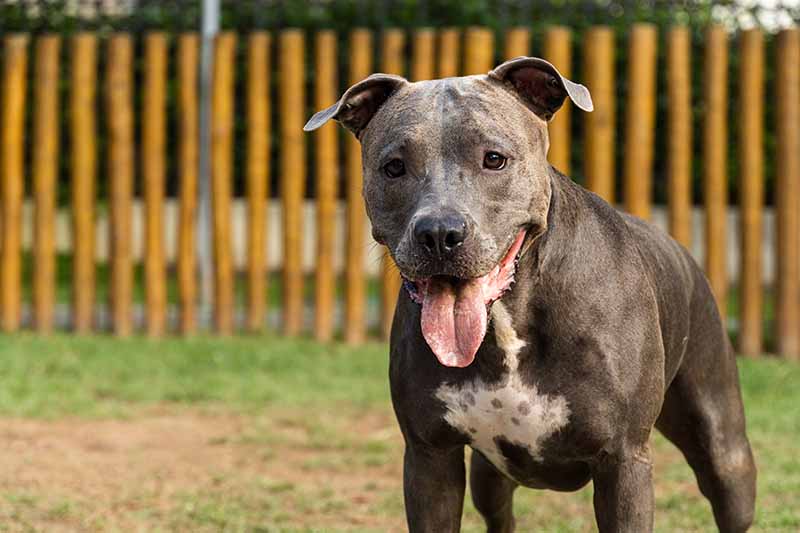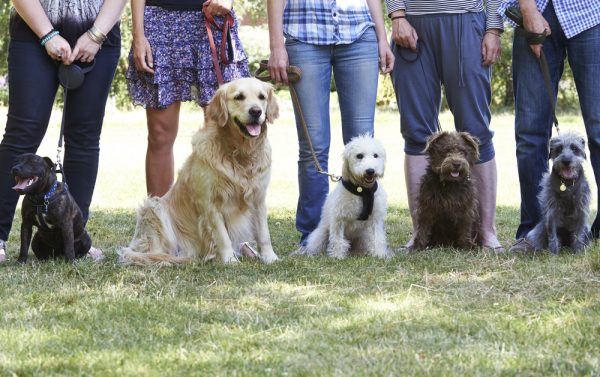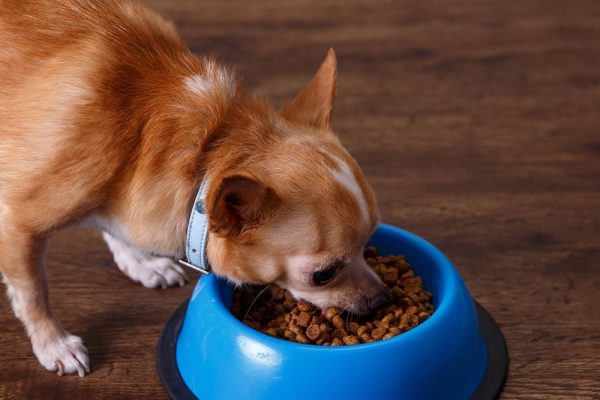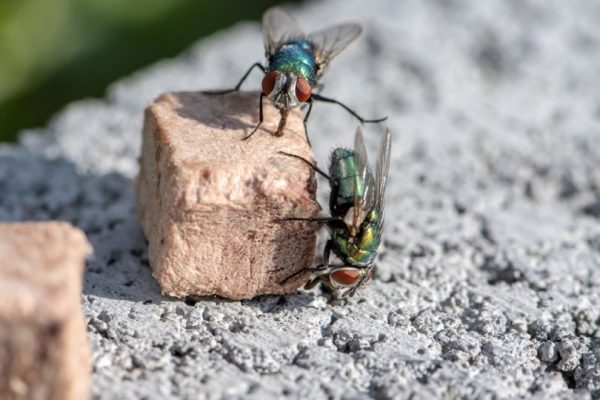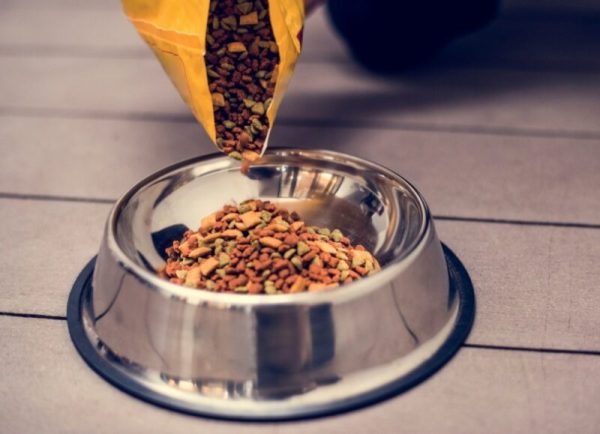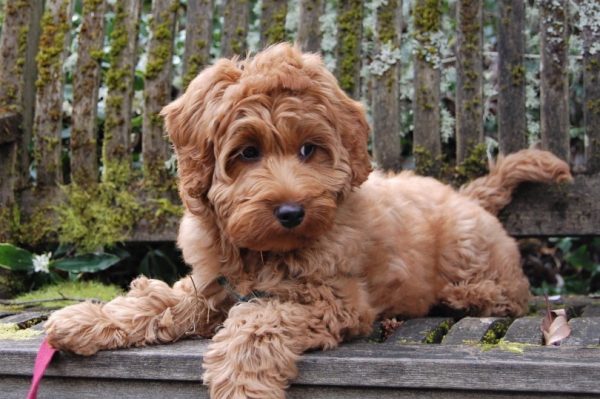In this article
As a Pitbull owner or someone considering adding one to your family, you might be curious about when they will reach their full size. A Pitbull can reach full size in around 12-18 months. Knowing when they stop growing and how to support their healthy development is essential for any responsible pet parent.
We invite you to join us as we explore the Pitbull’s growth timeline. You’ll also pick up some helpful tips to ensure you’re raising a healthy, happy pup.

The Growth Timeline of a Pitbull
Pitbulls, like all dogs, grow at different rates depending on their genetics and environment. Generally, you can expect your Pit to reach full size between 12 and 18 months of age.1 However, muscle development and weight gain can continue until they are 2 years old.
So, while their height may plateau sooner, they’ll still be filling out and gaining strength for a little longer. With regular exercise and care, you can look forward to your pup having a healthy weight and build.
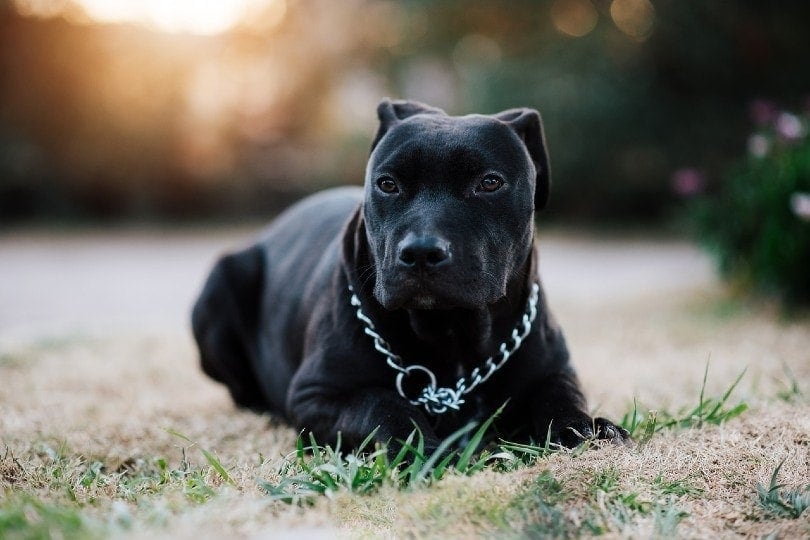
How Much Should a 1-Year-Old Pitbull Weigh?
At around one year of age, your Pitbull is likely nearing the end of their vertical growth spurt. But what should they weigh? Males typically weigh 35 to 60 pounds, while females range from 30 to 50 pounds. Keep in mind that these figures are approximate,2 as each dog is unique. If you’re concerned about your Pitbull’s weight, consult a veterinarian.
How Big Can Pitbulls Get?
Pitbulls are a medium to large-sized breed, and their size can vary depending on their specific type and genetics. American Pitbull Terriers, for example, usually stand 17 to 21 inches tall at the shoulder.3 Some males can weigh up to 80 pounds, while females top out around 65 pounds.
If you have an American Bully or a Staffordshire Bull Terrier, their size may vary. If you’re unsure, research the specific breed or consult with a knowledgeable professional.
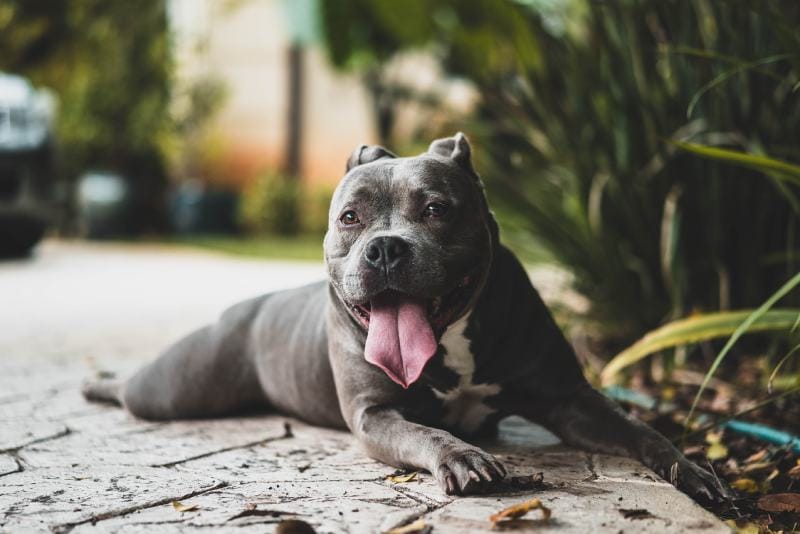
Promoting Healthy Growth for Your Pitbull
As a responsible pet owner, you want to ensure your Pitbull grows strong and healthy. Here are a few tips to help you achieve that goal:
Balanced Nutrition
It’s crucial that you feed your pup quality food. That means making sure it’s right for their age and that it meets their nutritional needs. Remember to adjust the portion sizes as your dog grows, and don’t hesitate to check with a vet for specific recommendations.
If you need to speak with a vet but can't get to one, head over to PangoVet. It's our online service where you can talk to a vet online and get the personalized advice you need for your pet — all at an affordable price!

Regular Exercise
Due to their high energy levels, Pitbulls require ample daily physical activity. Be sure to incorporate activities like walking, hiking, or playing fetch to help them burn off energy and maintain a healthy weight.
Mental Stimulation
Keep your Pitbull mentally engaged with toys, obedience training, or agility courses. Pitbulls get bored easily and can quickly become destructive if they aren’t reigned in. Take the time to instill discipline while ensuring they have toys and activities to keep them busy.
Vet Check-ups
Regular visits to the vet are critical components for keeping your Pitbull healthy. Your vet can identify potential issues early on, ensuring your dog stays on track developmentally and receives any necessary treatment.
Socialization
As early as possible, you must ensure your Pitbull spends plenty of time around different people, pets, and places. In doing so, your Pit will be far less likely to act aggressively or be afraid around others.
If you’re too busy to take your pup for a walk every day or give them the exercise needed for healthy growth, consider hiring someone to help. Starting a routine early on will go a long way, ensuring a happy and healthy companion.
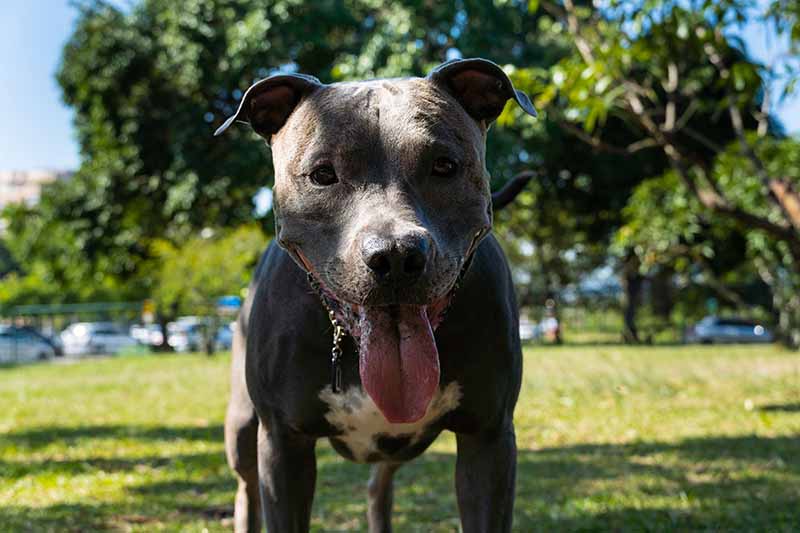

Keeping Your Pitbull Safe and Happy
As your Pitbull grows, keeping them safe and content is crucial. Here are some tips to help:
Leash Training: Teach your pup proper leash manners from a young age to prevent pulling or lunging. This keeps them safe during walks and makes the experience more enjoyable for both of you.
Crate Training: A crate can be a safe and comfortable space for your Pitbull, especially during their growing stages. Proper crate training can help with housebreaking, reduce separation anxiety, and provide a cozy spot for your pup to retreat when they need downtime.
Positive Reinforcement: Use positive reinforcement techniques, such as treats, praise, and playtime, to reward good behavior. This helps build a strong bond between you and your Pitbull while teaching them desirable habits.
Preventing Escapes: Pitbulls can be curious and adventurous, so ensure your yard is securely fenced-in and your dog can’t easily escape. Regularly check for gaps, broken panels, or other potential escape routes.
Provide Comfy Spaces: As your pup grows, make sure they have a comfortable bed or resting area that can accommodate their size. This helps prevent joint issues and ensures they get the rest they need to support their growth.
Making these vital tips a regular part of your Pit’s upbringing will have a positive effect not just on their health but also their mental well-being. Your Pitbull will definitely appreciate the love and care as they grow.

Conclusion
Understanding when your Pitbull will stop growing and how to promote their healthy development can be incredibly rewarding. By following the tips and advice in this article, you’ll be well on your way to raising a strong, happy, and well-adjusted Pitbull companion.
Remember, each dog is unique, and it’s essential to monitor your pup’s progress and consult your veterinarian for personalized guidance. Happy pet parenting!
Featured Image Credit: Diego Thomazini, Shutterstock
